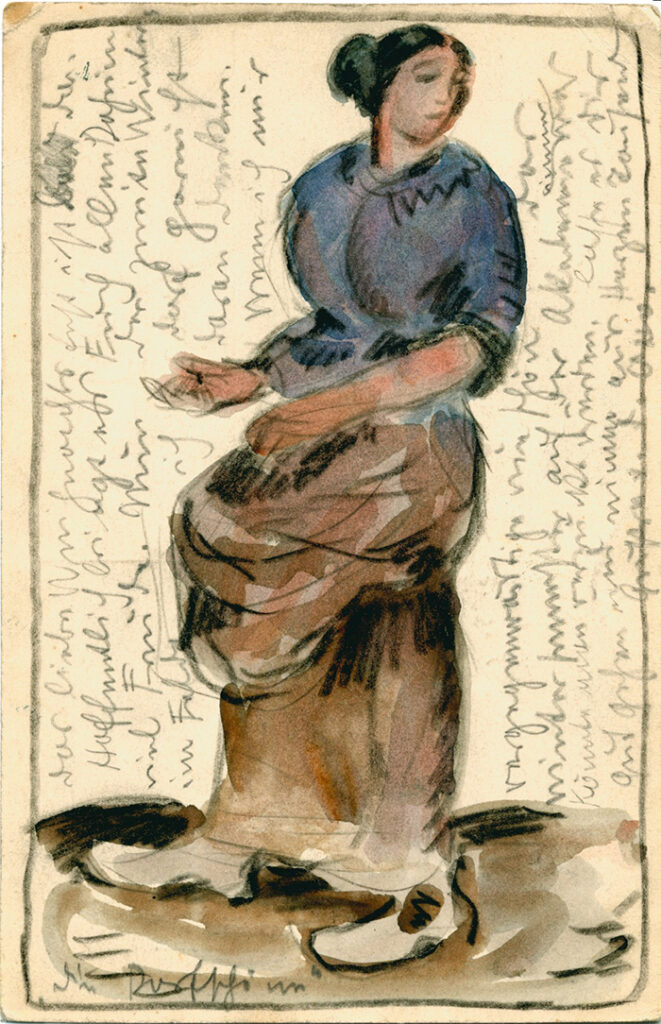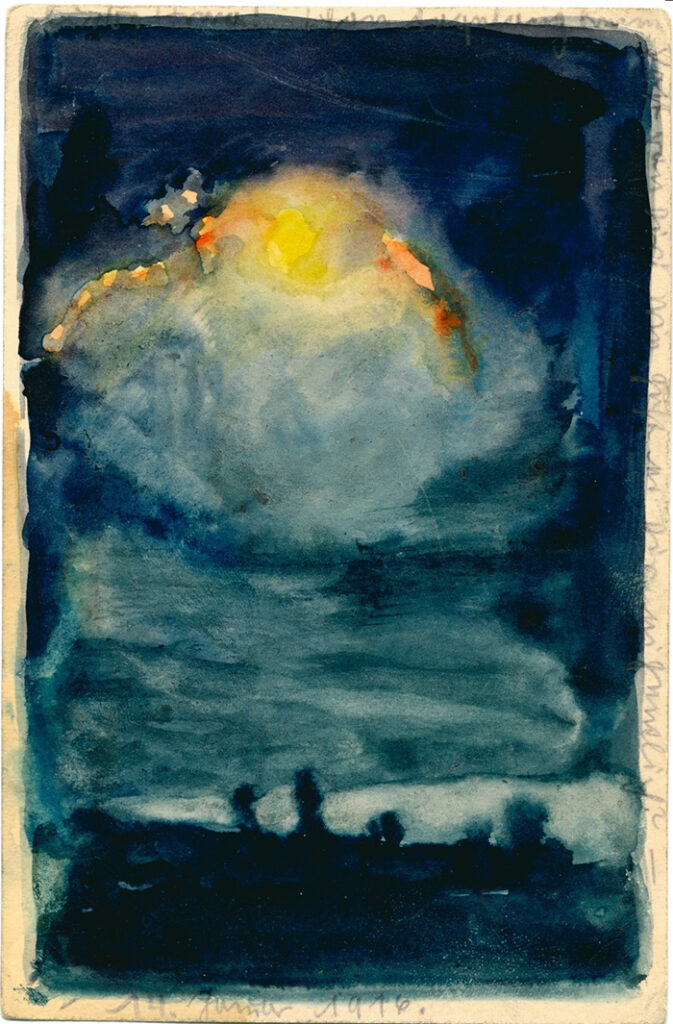By Mercedes Del Riego

Peter Guenther and his wife, Andrea, died a few short months apart. “I should not have been surprised given the deep love they still felt for one another after fifty-eight years of marriage,” their daughter Irene Guenther wrote in the preface to her book, Postcards from the Trenches: A German Soldier’s Testimony of the Great War. Irene recalled searching bookcases in their home one last time at two in the morning for any sentimental things she might have overlooked before the house was sold that morning at nine. Sure enough, she had missed two large envelopes that had fallen flat on the top of the floor-to-ceiling bookshelves. What she uncovered in one of the envelopes were eighty postcards dating from November 1915 to May 1916, hand-painted with accompanying text, by a German soldier named Otto Schubert.i
Irene spent eight years researching and writing a book about this young soldier/artist and how her father had come to possess postcards. Just a month before her manuscript deadline, she found a letter in her father’s files between the artist’s second wife and Peter, who planned to mount an exhibit of the postcards. Irene rushed to send a letter to the artist’s wife and family and received by email permission to publish the book from Schubert’s daughter and his wife, who died the following day. If that was not serendipitous enough, with only three days remaining to turn in the manuscript, Guenther was double-checking Schubert’s art oeuvre, which spanned almost sixty years, when, she recalled, “I discovered that he illustrated my grandfather’s poetry book in 1920. And I just … I had goosebumps all over me because I can’t think of [a better example] of overlap between professional and personal [life].”
Marking the centennial of the end of World War I, the book was released in 2018. Soon after, the BBC broadcast an interview with Guenther across Europe. “About a day after that interview,” she recalled, “I receive an email from the grandson of Otto Schubert … telling me that he didn’t know anything about his grandfather, that all of those records had been destroyed with the bombing of Dresden in World War II, and that he was forever grateful to learn more about him.”


In addition to publishing her book, Guenther collaborated with Dr. Marion Deshmukh to mount exhibitions of the postcards, artwork, and trench art of both American and German World War I soldiers in Houston, Washington, D.C., Berlin, and Salzwedel. Just as her father had done before her, Irene Guenther made the important connections between art and history, and humanity, spreading the same joy and love for art to UH students, readers, and anyone who appreciates creative expression.
To read the full article, click here to read the pdf or on Buy Magazines above to purchase a print copy or subscribe.
Irene Guenther explains how she came to find the postcards created by Otto Schubert and the Postcards from the Trenches book and exhibit marking the centennial of World War I.


 Follow
Follow